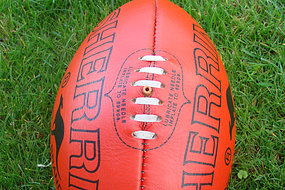kingpin007
Bluelighter
- Joined
- Aug 24, 2007
- Messages
- 1,888
Ten AFL players fail illicit drugs tests

The AFL says it will expand its illicit drug testing regime even further in 2009, after 10 players failed tests last year.
Of the 10, two players failed two tests each, putting them among a list of seven players with two strikes.
Under the AFL's three strike drug policy, players who fail three tests within four years will be named and face an 18 game ban and a $5,000 fine.
Eight of the failed tests were for stimulants, three for cannabinoids and one for mixed substances.
More than 1,200 tests were carried out in 2008 and that will rise to 1,500 this year.
AFL football operations general manager Adrian Anderson says he is not surprised that players are still failing illicit drugs tests.
"It's inevitable with a group as large as what we've got that there will be some players from time to time who make bad decisions," he said.
"The role of this policy is to address those bad decisions and change their behaviour and these results show that that's what's happening."
The 12 failed tests is the first time the rate of failed tests has been below one per cent.
Brendon Gale from the AFL Players' Association says testing players for illicit drugs more often can only benefit players in the long run.
"What's really important is that players that have issues receive an intervention and they receive the opportunity to actually change their behaviour in a supportive environment," he said.
http://www.abc.net.au/news/stories/2009/05/28/2583453.htm
